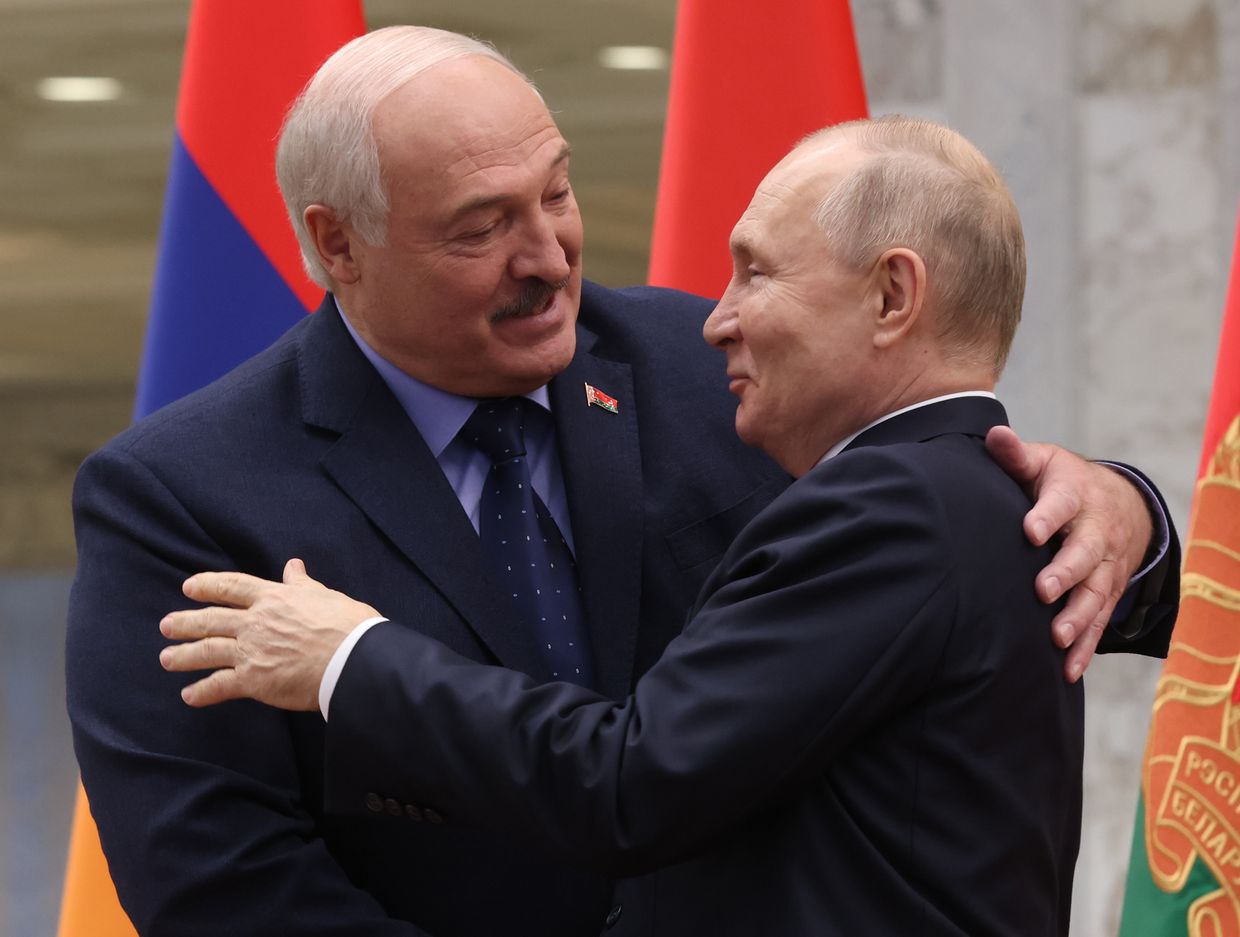The move follows Ukraine's ratification of the minerals agreement, deepening U.S.-Ukraine economic ties and signaling expanded U.S. involvement in Ukraine's long-term recovery.
"Ukraine has initiated a coordinated campaign to vilify Hungary in order to undermine our initiative to hold a poll on (Kyiv's) EU membership," Hungarian Prime Minister Viktor Orban said.
"Our people are going to be going there," U.S. President Donald Trump said.
German Chancellor Friedrich Merz warned that further concessions from Ukraine during negotiations would be unreasonable if Russia continues to attack civilian targets.
U.S. President Donald Trump's special envoys, Steve Witkoff and Keith Kellogg, will travel to Istanbul for possible peace talks between Ukraine and Russia, Reuters reported on May 13, citing three undisclosed sources.
President Volodymyr Zelensky said he will meet with Turkish President Recep Tayyip Erdogan in Ankara, but said both leaders are ready to fly to Istanbul if Russian President Vladimir Putin chooses to attend the talks there.
Dnipropetrovsk Oblast, a major industrial and logistical hub, remains untouched by ground incursions but is under growing threat.
Presidential Office chief Andriy Yermak said Ukraine is "ready to discuss anything," but "only if a ceasefire is achieved."
A captive named Umit allegedly agreed to serve in the Russian army in exchange for Russian citizenship and a monetary reward of 2 million rubles ($25,000).
Russia's Buryatia Republic declared a state of emergency on May 13 over massive forest fires that have engulfed multiple regions in the Russian Far East.
Lukashenko threatens internet blackout during 2025 elections to prevent protests

Belarusian dictator Alexander Lukashenko has stated that he may completely shut down the internet during the 2025 presidential elections if protests similar to those in 2020 arise, state-run news outlet Belta reported on Nov. 22.
"If this (the protests) happens again, we will shut the internet down completely," Lukashenko said, admitting that internet shutdowns during the 2020 protests were carried out with his approval.
Speaking at Minsk State Linguistic University, he justified the 2020 internet blackout by claiming it was necessary to protect the country’s stability, as protests were allegedly organized online, particularly from abroad.
Lukashenko also denied allegations of violence against demonstrators, asserting, "No one was holding down or beating anyone," despite widespread reports of police brutality during the 2020 protests.
Lukashenko, the country's leader since 1994 and Russian President Vladimir Putin's closest ally, has long been accused of staging fraudulent elections in Belarus.
In 2020, during the last presidential election, Lukashenko maintained power despite the country's most prominent opposition leader, Sviatlana Tsikhanouskaya, receiving popular support — claiming she won with 60 percent of the vote.
Following the fabricated results, mass protest erupted in Minsk but were ultimately quelled with the support of Russia. According to the Belarusian human rights group Viasna, over 50,000 citizens have been detained for political reasons since the 2020 election.
His remarks come as Belarus approaches its next presidential election, amid ongoing international scrutiny of his 30-year rule and the repression of dissent.

Most Popular

After 3 years of full-scale war in Ukraine, Europe announces plan to ban all Russian gas imports

Journalist Roshchyna's body missing organs after Russian captivity, investigation says

Ukrainian sea drone downs Russian fighter jet in 'world-first' strike, intelligence says

Ukraine is sending the war back to Russia — just in time for Victory Day

'Justice inevitably comes' — Zelensky on deaths of high-ranking Russian officials
Editors' Picks

How medics of Ukraine’s 3rd Assault Brigade deal with horrors of drone warfare

As Russia trains abducted children for war, Ukraine fights uphill battle to bring them home

'I just hate the Russians' — Kyiv district recovers from drone strike as ceasefire remains elusive



